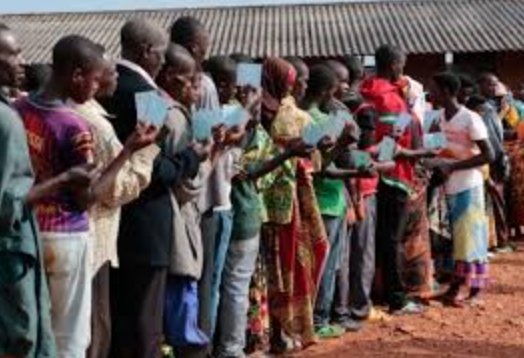Burundi held legislative and local elections amid economic challenges, with high voter turnout and hopes for solutions to fuel shortages; new administrative reforms reduce parliamentary seats, while opposition leader Agathon Rwasa was excluded.
Burundians vote to elect lawmakers and local leaders


Burundi conducted its legislative and local elections on Thursday, 5 June 2025, with over six million registered voters participating to elect members of parliament as well as communal councilors. This nationwide democratic exercise was organized by the National Independent Electoral Commission (CENI), which set up a total of 14,156 polling stations both within the country and abroad. Specifically, there were 14,103 polling stations across Burundi and an additional 53 polling stations established overseas, including those in the diaspora and at peacekeeping mission sites, all catering to the 6,013,498 registered voters.
On the morning of the election day, several polling stations that were visited showed long queues of voters waiting to cast their ballots. This turnout indicated a strong sense of civic engagement among Burundians despite the country grappling with a worsening economic environment.
The elections took place amid a deepening socio-economic crisis that has affected the country significantly. Challenges such as persistent fuel shortages, skyrocketing inflation, and the scarcity of essential goods like sugar and foreign currency have had a profound impact on the daily lives of citizens.
Sylvana Nizigiyimana, a voter from Giheta, voiced the sentiments of many when she stated, “They should stay close to us to understand our problems because we are voting for them, hoping they will help us.” Indeed, the issue of fuel shortages was a predominant concern across the electorate. Joséphine Inabigega, a resident of Gitega, expressed her belief that addressing the fuel crisis should be among the highest priorities for the incoming leaders.
Reflecting widespread public hopes, many voters conveyed their expectation that the new leadership would urgently focus on resolving these national difficulties. Joséphine Inabigega further remarked, “They must find us fuel because when it’s available, we can move around, and the country functions better. We ask them to do everything possible to solve this fuel issue.”
President Evariste Ndayishimiye himself took part in the voting process, casting his ballot at a school located in his home village. In his public remarks, the President highlighted the importance of voting as a patriotic duty and urged those elected to serve the nation with integrity and dedication.
“Burundians are usually proud to vote; they enjoy it — it’s patriotic. Anyone who doesn’t like elections doesn’t wish for a good future for the country. The winners must work for the good of everyone,” President Ndayishimiye said.
This election also marks the beginning of a new administrative organization in Burundi, which has been restructured into five provinces and 42 communes. As a consequence of this reorganization, the number of parliamentary seats will be reduced from 123 to 103 in the forthcoming legislature.
Notably absent from this electoral process are Agathon Rwasa, a prominent opposition leader, and his allies. Rwasa was removed from the leadership of his party, the National Congress for Freedom (CNL), and has been excluded from participating in the voting.

 বাংলা
বাংলা  Spanish
Spanish  Arabic
Arabic  French
French  Chinese
Chinese 
